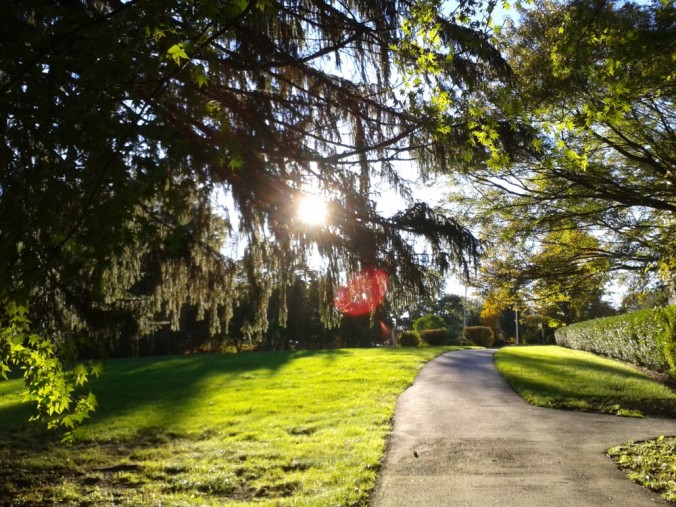“Silence
allows a person to speak with God,
to hear God, and to receive from God;
in holy silence the soul withdraws into itself,
comes to know itself better,
and achieves greater union with God.
The person will be fascinated by God,
enter into intimate conversation with God,
and pray with Saint Augustine:
“That I may know myself, that I may know thee.”
– Bl. James Alberione
When is the last time that you were surrounded by silence?
When I first visited the convent, I was told about “Grand Silence,” which was the sisters’ daily practice of not talking (except for an absolute emergency) from night prayers until breakfast the next morning. As a postulant (sister-in-training), I would be required to keep the Grand Silence too. The first night I was a bit uneasy–I worried that I’d forget and start talking to someone, and I wasn’t sure what the penalty would be! I also wondered how dire “an absolute emergency” would have to be to justify speaking a few words.
Grand Silence is a monastic tradition which recognizes how valuable silence is for growing in a spirit of recollection and prayer, for knowing oneself, for entering into a deeper communion with God.
Because we Daughters of Saint Paul are an active apostolic community, we don’t keep “Grand Silence” as strictly as a contemplative monastery, but we do keep a spirit of silence in the convent at night and in the early morning, a silence that is rarely broken. I find it invaluable for allowing me to turn my focus once again inward, to my relationship with God, and to mull over how I spent the day. Silence is one of the things I miss the most when I’m traveling and not staying at a convent.
The “noisiness” of our lives can distract us from the deeper purpose of our lives: to do God’s will. Today, many of us live with almost constant noise of some kind or other. Whether it’s our smartphone’s frequent ping calling our attention, the roar of traffic, the mechanical whir of the refrigerator, favorite music or talk radio coming through our tiny earbuds, or chatting with friends or family, silence has become a rare, precious commodity.
I treasure the moments that I take a walk in a park where I can really focus on the birdsongs and the whisper of the wind in the trees, and just take in the silence. Making time for silence in our lives is vital to deepening our relationship with God. Silence is not just passive: I often find that God speaks to me in silence, without words.
In his short message for World Communication Day in 2012, Pope Benedict XVI wrote the best “call to silence” I have ever read. I encourage you to read the whole message—it’s just a little over two pages long—and it will say better than I ever could why making silence part of your daily or weekly routine is irreplaceable in your life as a human being, as a believer, as a discerner.
For us who are discerning God’s will and seeking to listen to God’s call in our daily life, making time for silence is key. Silence helps us:
- come to know ourselves
- recognize what in our lives is important
- hear God and enter into fuller communion with God
- enter more deeply into our relationships with others
- listen compassionately to others
- open ourselves to the Truth
- contemplate God’s invitations and presence in the world
- become aware of what we really want to communicate….
If you are able to take some silent time, add to this list afterwards. How does silence help you to become more yourself, and closer to others and to God? You may not notice much of a difference at first, but if you develop a “silence habit,” you may find yourself more self-aware, focused, happier, and more “in tune with” God through your day.
Try This
Make time for real silence in your life this week. Go for a long walk in the country, visit a quiet church, go into your room and close the door and do something quiet, or find another way to spend time in silence.











